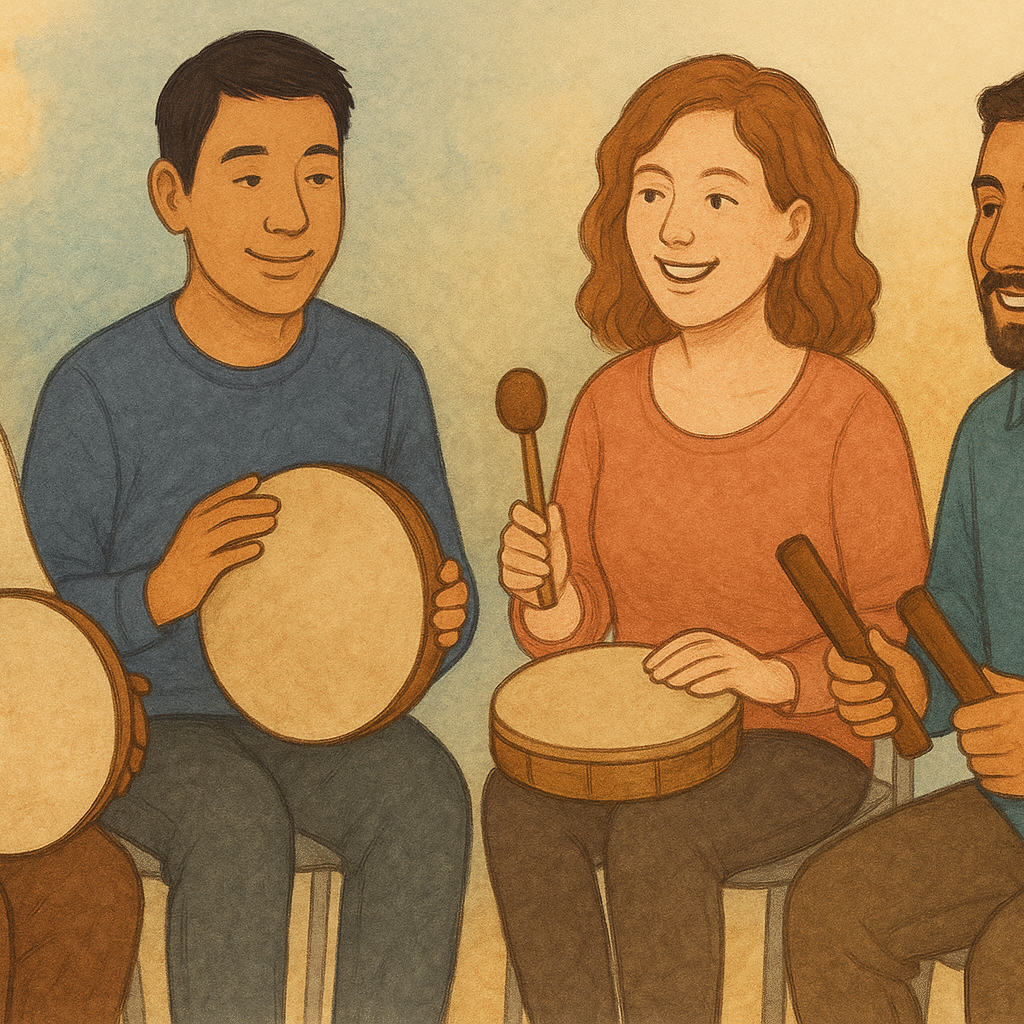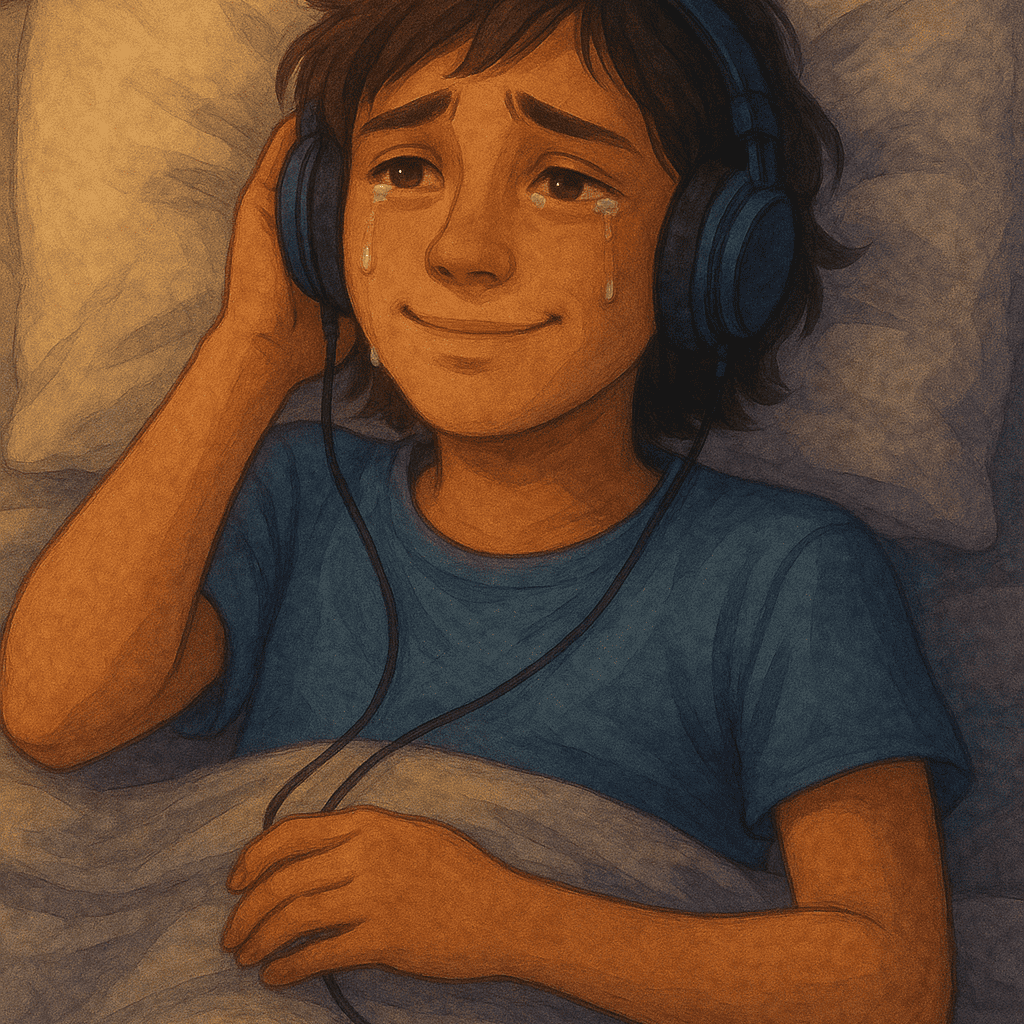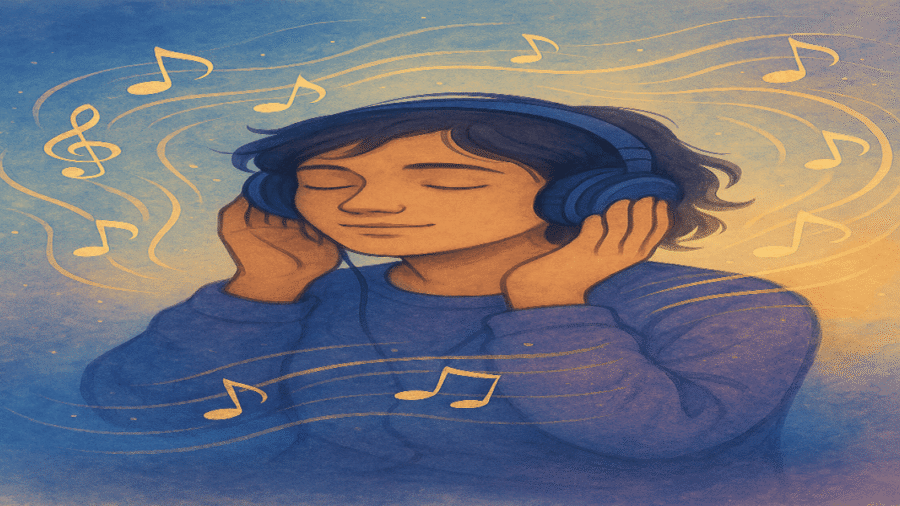Have you ever played a song that made you cry just because the music knew what you had no words to express, even when you could not explain it yourself? That is the power of music. Music is not just about the sound or just the entertainment, it does not just entertain, it is memory, emotion, comfort, healing and connection.
For many people, music becomes a safe place when words fail. Whether grieving a loss, getting through anxiety, or feeling overwhelmed by life, music has a unique ability to reach into our emotional world and gently help us breathe again.
How Music Helps Us Heal Emotionally
1. Music Reduces Stress and Regulates Emotions
According to the American Psychiatric Association, music therapy has been a consistent success in calming stress and soothing the nervous system. It affects brain regions related to mood, memory, and arousal, helping individuals shift from a state of anxiety to one of calm.
Listening to slow, calming rhythms can lower heart rate and cortisol levels responsible for stress. This means music a simple but powerful tool to help regulate emotions in daily life.
2. It Helps People Recover from Trauma
Trauma leaves emotional wounds that can feel impossible to describe. Music is one form of nonverbal communication of pain and reconnection to the self. A 2024 study in BMC Psychology confirmed that music therapy enhanced resilience, improved emotional expression, and reduced trauma symptoms in participants for 12 weeks.
This is especially useful in children or individuals who have difficulty expressing trauma verbally. For example, Calming Techniques for Anxious Children explains how rhythm and sound help soothe and ground emotionally dysregulated children.
3. Music Relieves Depression and Feelings of Isolation
Depression often brings a heavy sense of disconnection from others, from joy, and even from one’s own emotions. But music comes as a bridge. Music therapy has been proven to enhance mood and motivation in individuals with depression and anxiety and is increasingly being paired with supportive group therapy.
Even outside of therapy, listening to a song that captures your internal struggles can remind you that you are not alone. Music can also serve as a gentle reminder to pause, feel, and process when emotions become too tightly held inside.
4. Group Music Therapy Builds Social and Emotional Bonds
Isolation is a major risk factor for poor mental health. But group music therapy offers both emotional release and social interaction. A recent article form APA found that just six weeks of group sessions of music therapy led to reduced depressive symptoms and deeper emotional sharing among participants. Source
When people create music together, whether through drumming, singing, or shared playlists, they bond over shared emotions. It becomes a kind of emotional glue, building safety and empathy.

5. Rhythmic Movement Brigs Healing
Music has a way of causing movements like dancing, swaying, or tapping your feet. And music paired with movement becomes a pretty powerful healing force for emotions.
In Why Dancing is Good for the Mind and Soul, you will learn how moving your body to music raises your spirits, releases endorphins, and keeps you feel more alive. For those of us healing from emotional trauma, the body’s engagement with music can be the first step toward feeling again.
6. Music Reconnects Us with Hope
When going through emotional pain, it is easy to feel stuck. But music reminds us that grief has a rhythm, even sadness has a melody and that happiness may come back, though gradually.
Research shows that music therapy helps develop long-term coping strategies and emotional regulation, especially for adolescents. It becomes not just a temporary relief, but a reliable companion for long-term healing. Source

How to Use Music for Emotional Healing in Everyday Life
You do not need formal therapy to start using music to support your emotional health. Here are a few simple strategies:
- Create Emotional Playlists: Make playlists for different moods i.e. for comfort, grief, motivation, or hope.
- Listen Closely: Do not just play music in the background. Sit still. Pay attention to each word. Let it touch your heart.
- Sing or Hum: You do not need to be “good” at singing. The act itself helps regulate breath and mood.
- Explore Music with Movement: Dance in your room. Walk to the beat. Let your body respond.
- Journal After Listening: Reflect on what came up emotionally while listening. This deepens healing.
Let Music Be a Gentle Guide
Emotional pain is isolating. But music makes us feel less alone. It touches the part of us we have hidden, ignored, or forgotten. It reminds us that we are still human capable of feeling, healing, and moving forward.
You do not need to have all the words. Sometimes, you just need a song that understands you.



Add a Comment